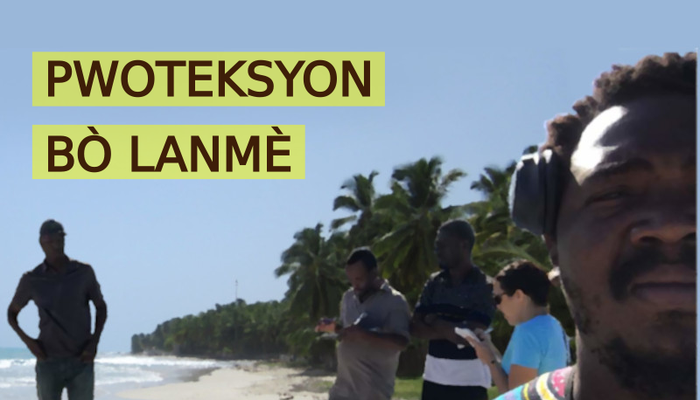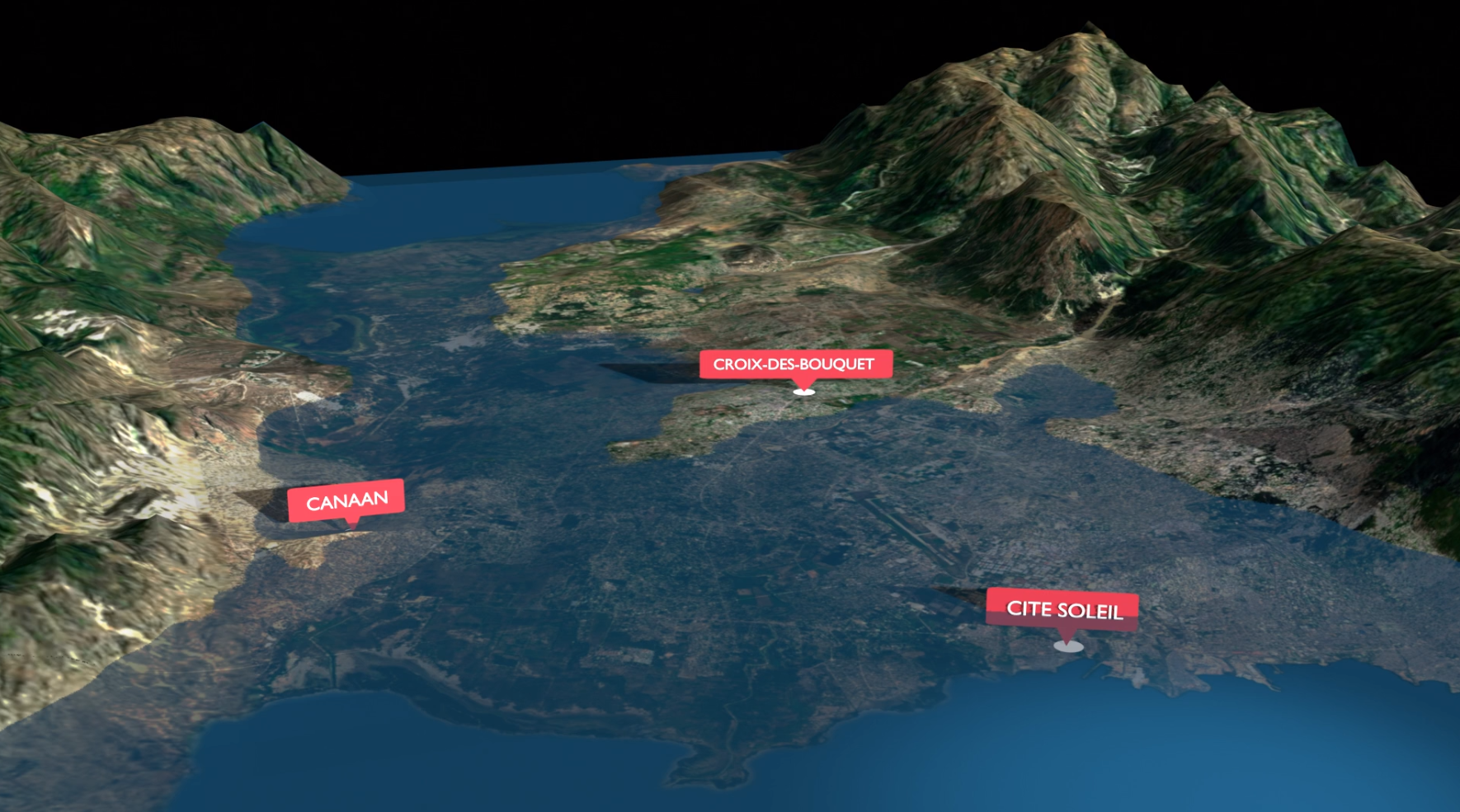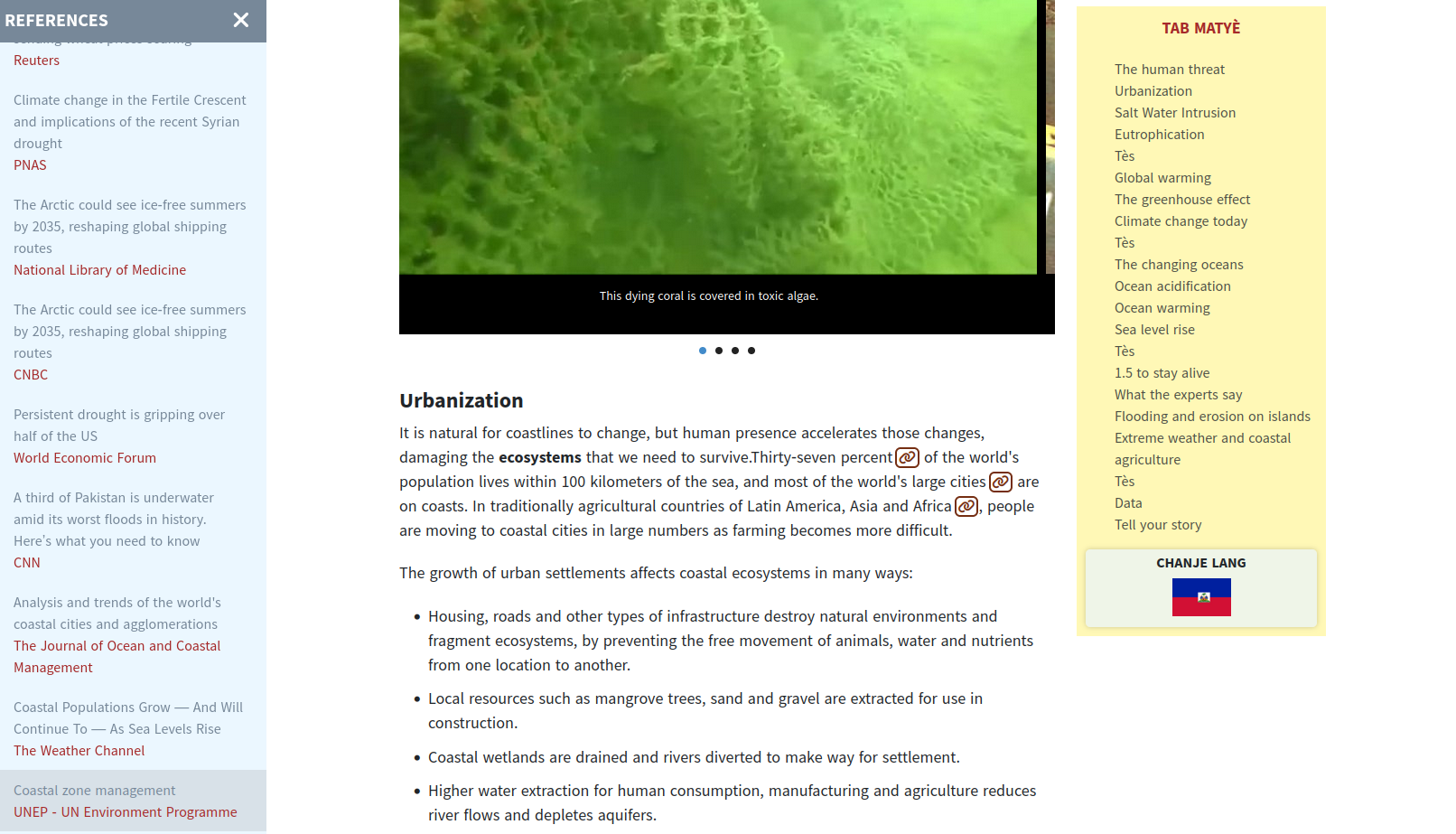
Pwoteksyon Bo Lanme
An eight-module course on covering coastal resilience for Haitian Journalists, making the latest academic information available in French and Creole.
Haiti is one of the most vulnerable countries to climate change in the world. Its coastlines have always been at the risk of storm damage and erosion but increasing urbanization has put more and more people in harm's way. Today, nobody lives more than 100 kilometers from the sea, and as deforestation destroys farmland, the interior offers less and less refuge.

There is a wealth of scientific literature about the threats Haiti's coastlines face, as well as possible mitigation strategies and case studies from around the world of populations who have faced up to similar threats. Unfortunately, it is almost all in English and technically dense, making it inaccessible to the average working journalist in Haiti.
Pwoteksyon Bo Lanme, which means Coastal Protection in Haitian Creole, is a gentle introduction to the science of coastlines and climate change. It covers the cause and effects of coastal threats, from sea-level rise to salt-water intrusion, surveys the ways coastal cities around the world are preparing for climate change, and suggests story ideas and reporting techniques for covering these issues in local communities.

The course is in English, French and Creole. It was produced in association with the pioneering news agency Haiti Climat and funded by the Environmental Journalists Network. It features interviews with subject matter experts, both Haitian and international, animated explainer videos, data sheets and clear illustrations.